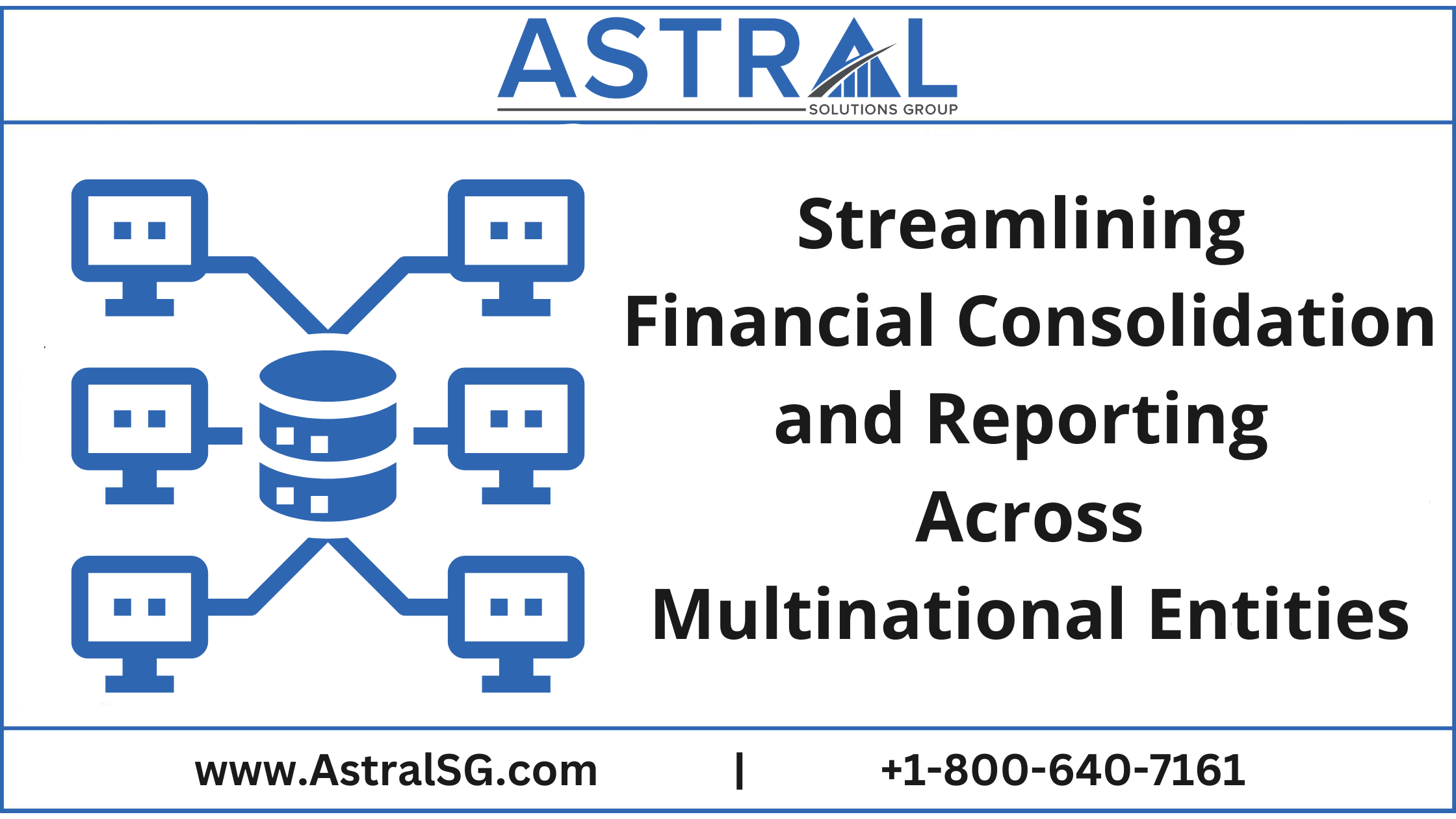
Streamlining Financial Consolidation Across Multi-National Entities
Managing financial consolidation for multinational corporations poses distinct issues because different locations have different rules, currencies, and accounting standards. This process must be streamlined for financial reporting to be accurate, timely, and compliant. The following are the main techniques for achieving quick financial consolidation:
-
Centralized Data Management:
The fragmented nature of financial data is one of the main challenges multinational corporation’s encounters. Financial data is frequently kept in different systems by companies operating in several nations, which causes delays and inconsistent reporting. A centralized data management system makes consolidating data from all businesses into a single platform easier.
Advantages:
• Promotes data consistency.
• Reduces manual errors and discrepancies.
• Provides a single source of truth for decision-making.Many businesses use financial management software or enterprise resource planning (ERP) systems, which may combine real-time data from several subsidiaries into a single system. This ensures that all data, regardless of source, is formatted uniformly.
-
Automation of Key Processes
Manual consolidation processes are frequently difficult and susceptible to mistakes, particularly when handling intercompany transactions, currency conversions, and eliminations. Automating these processes can greatly shorten financial book closure times and minimize human mistakes.
Automation Areas:
• Intercompany Transactions: To prevent duplicate counting or fraudulent reporting, any transactions between subsidiaries should be automatically removed.
• Currency Conversions: Automated currency conversion, using current exchange rates, ensures accurate and consistent translation of financial data from various regions.
• Journal Entries and Changes: Automating common changes, such as closing adjustments and consolidation of entries, accelerates the closing processes. -
Standardized Financial Reporting
The diversity of accounting standards between nations, such as IFRS, GAAP, or local laws, makes it challenging to combine financial information into a uniform, unified format. Companies can expedite reporting by implementing global financial standards or ensuring that local reports can be converted to a standard format.
Approach:
• Use one or similar chart of accounts (COA) for all businesses to streamline the consolidation process.
• Before submitting their financials for consolidation, make those local entities transform them into internationally recognized standards.
• Use consolidation software to automatically transform data into the required format and manage many reporting standards.Compliance:
Aligning with international financial reporting standards (IFRS) ensures compliance with global regulatory requirements and provides stakeholders with clear, accurate insights.
-
Cloud-Based Collaboration Tools
For financial consolidation to go well, teams spread globally must collaborate and communicate effectively. Thanks to cloud-based collaboration solutions that provide cross-entity communication and real-time data exchange, teams can collaborate remotely.
Advantages:
• Enables modifications and real-time access to data.
• Speeds up approvals and decision-making processes.
• Eliminates the need for email chains and manual file transfers, which can cause delays and mistakes. -
Real-Time Financial Consolidation and Reporting
Businesses can now have a continuous picture of their financial health by switching to real-time consolidation from quarterly or annual consolidations. This implies that the main business can access and examine the data instantly as each subsidiary closes its monthly books, enabling quicker decision-making.
Benefits:
• Enhanced clarity regarding worldwide financial outcomes.
• Ability to quickly react to changes in the market or financial risks.
• Quicker year-end or quarter-end closing because most work is completed gradually.
Conclusion:
Centralizing data, automating laborious procedures, standardizing reporting, encouraging real-time cooperation, and guaranteeing compliance are all necessary to streamline financial consolidation among multinational corporations. Businesses can achieve a more transparent and efficient financial consolidation process by embracing cloud-based solutions and modern financial consolidation tools that improve accuracy, speed up closings, and ensure regulatory compliance.




